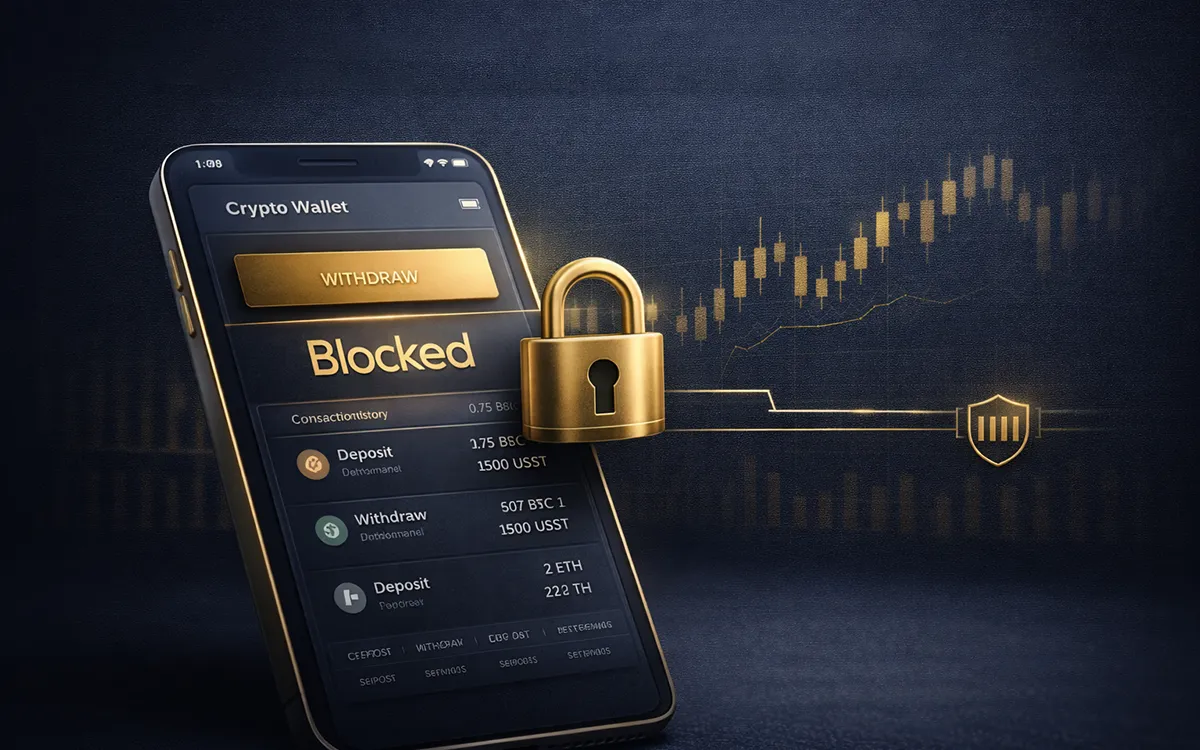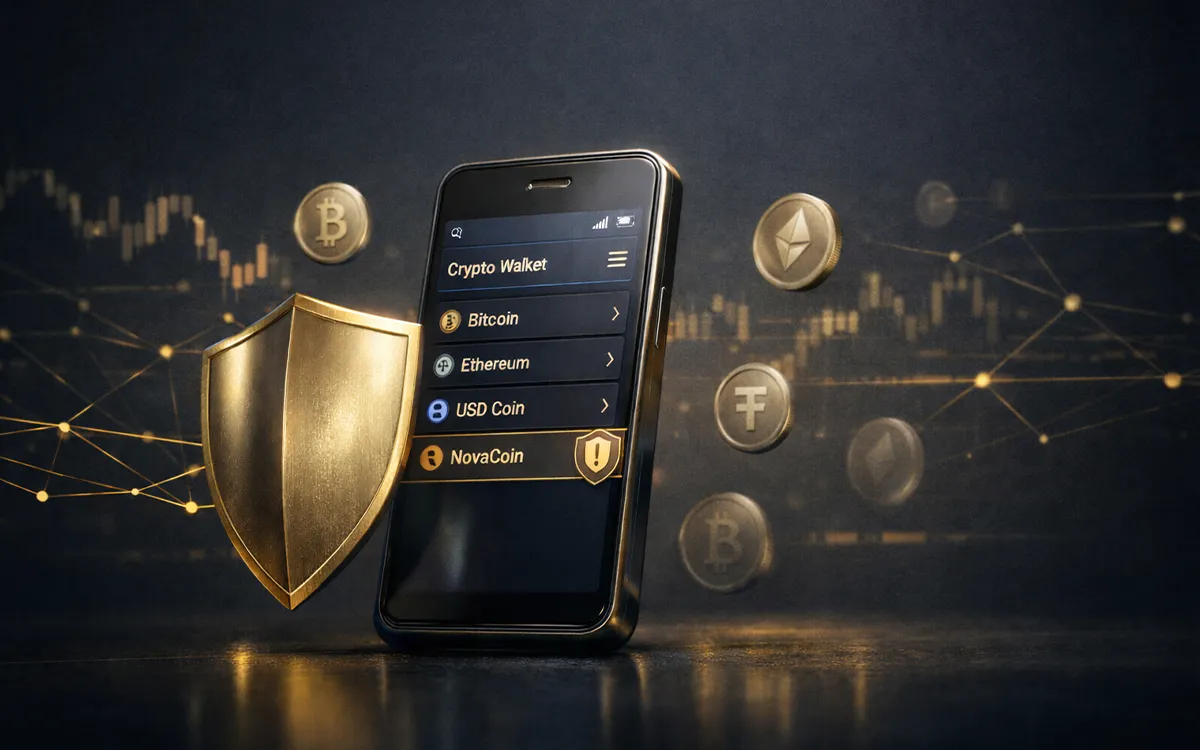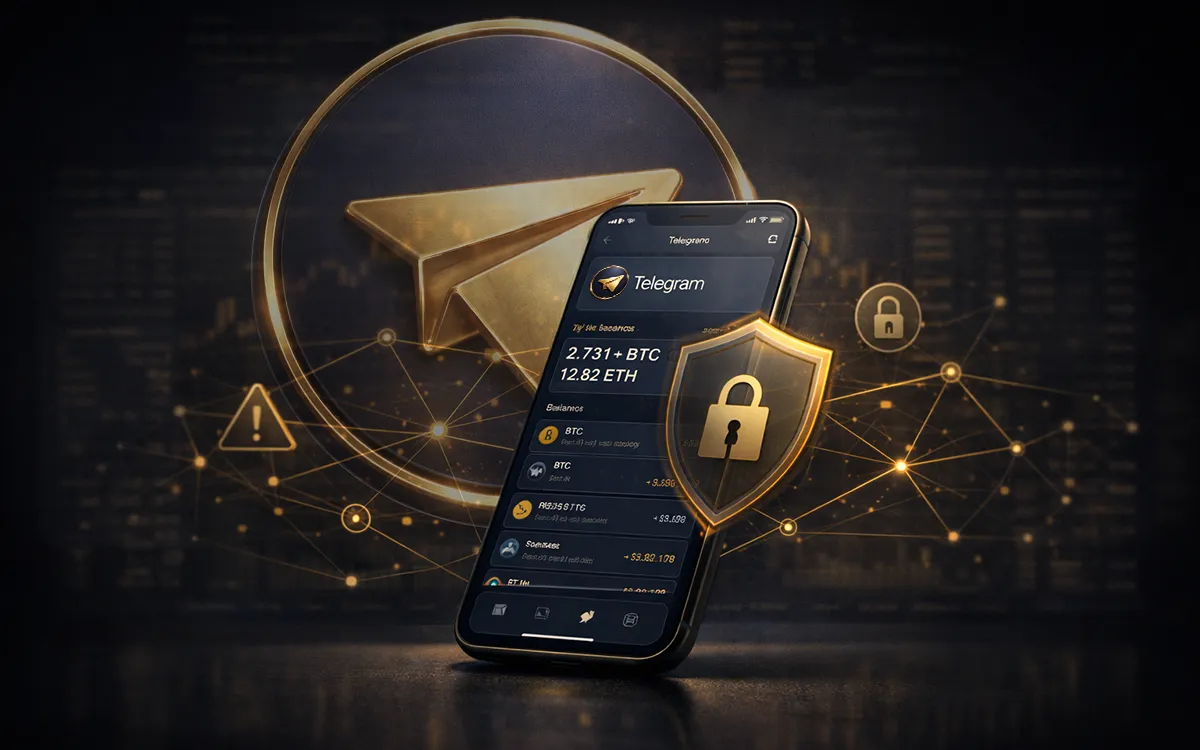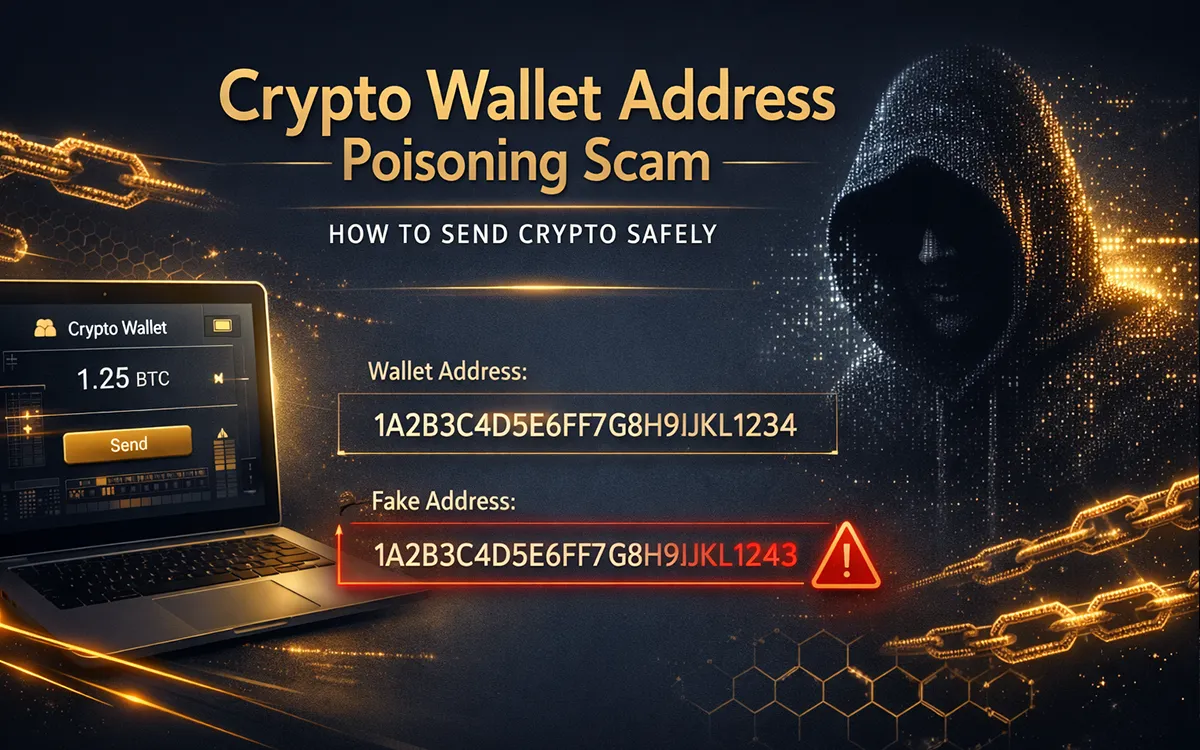
- Miscellaneous
- December 27, 2024
Table of Contents
Decentralized finance (DeFi) is reshaping the way people manage and access financial services, removing intermediaries like banks and relying on blockchain technology for secure, peer-to-peer transactions.
This system contrasts sharply with centralized finance, where banks and institutions act as middlemen, controlling and approving transactions.
In traditional finance, users face challenges like high fees, limited access, and potential delays. Meanwhile, DeFi offers transparency, lower costs, and global access—but it’s not without risks.
In fact, the cryptocurrency market lost nearly $10 billion to scams last year, with many falling victim to fraudulent platforms and phishing attacks.
It seems that side by side with DeFi, there emerges a whole range of scams that investors can meet. From DeFi wallet scams to crypto scams, it often becomes a difficult task for many to identify and avoid fraud in the decentralized ecosystem due to no central control.
This blog will describe typical DeFi frauds, how to avoid them, and what measures ensure your digital assets in the DeFi environment.
What are DeFi Scams and DeFi Wallet Scams?
DeFi frauds are scams against individuals who engage in decentralized finance markets. Such frauds generally target weaknesses in the absence of the governing body, the use of decentralized blockchain systems, and the various complexities of DeFi.
The most frequent DeFi scams are phishing attacks, rug pulls, or fake token offers, as the names suggest. Another risk is that criminals can lure users into visiting the links they need or sharing personal information, money, or crypto assets with the attackers.
On the other hand, DeFi wallet scams refer to fictitious projects that intend to dupe the users who sort their digital tokens in the decentralized ecosystem in DeFi wallets.
These attacks use tricking users to install malicious wallet apps or extensions, which steal private keys and therefore allow exploiters to take currency. The crypto DeFi wallet scams are especially severe since many consumers still have cheap or unknown and insecure wallets.
Indeed, both DeFi scams and DeFi wallet scams are schemes that leverage the absence of regulation and the technical nature of the DeFi environment, exposing the user’s funds to risk. With the evolution of the space, it is important to be educated and aware in order to not fall for these scams.
Most Common DeFi Scams You Should Know
As the popularity of DeFi grows, so does the ingenuity of scammers. Here are the most common DeFi scams that you should be aware of:
1. Phishing Scams
One of the most popular tricks used by fraudsters working in the sphere of DeFi is phishing. They mimic real projects or platforms and mislead users into inputting their wallet private keys or seed phrases. These attacks come as spam messages, email phishing, fake website pages, and social media messages in the identity of the genuine source. This is because once they get their hands on your private key, they will be able to take your money.
2. Rug Pulls
A rug pull is when the creators of a DeFi project remove all of the liquidity from the platform, and investors are left with tokens that are worth the paper they are written on. This is very popular today in DeFi token projects, where a team of developers mints a token, pumps it up, and then ghosts it with investors’ funds.
3. Airdrop Scams
In DeFi, airdrop fraud can originate as scammers distribute free tokens to lure investors. After a user registers for the airdrop, he/she is often requested to transfer a small cryptocurrency value to a wallet or share some personal sensitive information before realizing that it is a scam that was targeted at stealing money or information.
4. Social Media Scams
Nowadays fraudsters take advantage of social networks to invite people to invest in fake DeFi projects or wallets. Often they offer an opportunity to get a very high income or participate in ‘unique’ sales with minimal risks and sometimes even for a small fee. These social media scams build on the trust of the social networks, for it becomes increasingly difficult for the users to discern genuine projects from fraud schemes.
5. Wallet Dusting
Wallet dusting is the process of transferring a small amount of cryptocurrency to an address for the sake of tracing it. This is actually done as a sort of contextual data mining with the purpose of gaining more information about the user’s wallet and consumption patterns as a stepping stone toward more severe scams in the future. Though it does not take actual money directly, it forms the elementary step in most advanced frauds.
6. Fake DeFi Wallets
Some scammers create fake DeFi wallets to steal users' funds. These fake wallets often appear legitimate but are designed to collect personal information or private keys. Crypto DeFi wallet scams often target users who are unfamiliar with the security features of blockchain wallets, putting their assets at risk.
How to Spot DeFi Scams and Protect Your Wallet?
Identifying and protecting yourself from DeFi scams is crucial to ensuring your assets remain secure in the decentralized finance space. Here are some strategies to help you spot potential scams and protect your wallet:
1. Verify Website URLs and Platform Authenticity
Just as a reminder, whenever you are dealing with DeFi platforms or cryptocurrency wallets, always ensure that the URL addresses are correct. Other tricks that con artists love to use are forming heaps of similar-looking domains, proving just a little different, for example, "exampledefi.com" vs. "exampledefi.net." It is extremely important to check if you are on the official site before typing any of the private details.
Follow our guide to learn more in-depth ways to verify the authenticity of a Cryptocurrency exchange or a platform.
2. Use Hardware Wallets for Storage
If you’re using a DeFi wallet, keep in mind that having a hardware wallet can greatly improve the protection of your assets. This is a feature that makes losing money to internet scams a lot tougher since the keys are stored on hardware. It is also important not to keep most of your cryptocurrency in web-based wallets or exchanges if it is at all possible.
3. Research the DeFi Project Before Investing
Before engaging in any DeFi project, conduct thorough research. Choose audits provided by third parties and read reviews on the websites that are reliable to users. In simple terms, if any DeFi project looks like it could be too perfect to be real, that is probably a reality. Avoid a rug pull or any sort of project where the return on investment is promised to be great with very little risk involved.
4. Enable Two-Factor Authentication (2FA)
If possible, you should develop the habit of enabling two-factor authentication on your DeFi wallet, as well as the trading exchanges that you use. This offers a second level of protection to the accounts, and the attacker will otherwise take a longer time to compromise an account even if he gets your password.
5. Be Cautious of Unsolicited Offers
Be very wary of unsolicited offers, especially via social media or email, with claims of a limited-time airdrop or giveaway. Such offers are actually lures to trap unsuspecting victims. Reputable projects rarely ask for personal information or to send money in advance.
6. Check the Smart Contract Code
For advanced users, reviewing the smart contract code of a DeFi platform can help identify red flags.You may verify whether the contract has gone through auditing or has some suspicious functions that would permit the developers to withdraw your funds without your permission.
7. Look Out for Inconsistent Communication
Scammers often use aggressive or high-pressure tactics to convince users to act quickly. If a DeFi project rushes you to invest or demands sensitive information with little explanation, it's a red flag. Trustworthy projects maintain open, transparent communication with their users.
How to Avoid DeFi Scams and Not Fall for Them?
Avoiding DeFi scams requires a combination of vigilance, knowledge, and caution. Here are several key strategies you can implement to minimize your risk:
1. Stick to well-known platforms
While DeFi offers a wide range of opportunities, it’s crucial to stick to reputable and well-known platforms. Less likely established platforms that are ready to show all the transactions and have a large number of users are ready to perform fraudulent actions. Newly emerging DeFi projects having little to no credibility should not be invested in by users unless they have been audited and are apparently receiving good reviews by the community.
2. Educate Yourself About DeFi and Crypto Risks
It is possible to mitigate many of the risks presented by decentralized finance and crypto scams by being aware of them. Here is what you can do best: Keep yourselves up to date on the current trends in the scams and new technologies, as well as the emerging security concerns. The more knowledge you have, the less chance you have to get entangled in mere deceptive miracles such as the DeFi wallet scams or even the rug pulls.
3. Don’t Share Your Private Keys or Seed Phrases
Do not give your keys or seed phrases to anyone; it’s a fundamental rule of using cryptocurrencies. No legal DeFi platforms will ask for such information from you. If you are being asked to provide your private key, then you should know that it’s a ripoff.
4. Use Reputable DeFi Wallets
Not all DeFi wallets are made equal. Stay with wallets that have been audited and trusted by the community for reliability; a good example would be MetaMask, Trust Wallet, and Ledger Nano. Beware of wallet apps or plugins that are not established or that are not listed with any reviews.
5. Diversify Your Investments
One should not put money in a single project or a single wallet. This way, as you spread your investment across projects and wallets, you can reduce the likely impact of one failed scam.
6. Check for Smart Contract Audits
Make sure the DeFi projects you invest in have undergone proper smart contract audits by third-party security firms. These audits can help identify potential vulnerabilities and mitigate the risk of DeFi wallet scams.
7. Follow Official Communication Channels
Follow the official social media accounts and channels of the DeFi projects you’re interested in. Be wary of offers or news posted by unofficial accounts. Scammers often impersonate the social media profiles of legitimate projects to mislead users.
Conclusion
With continuous change in the world of DeFi, it is paramount to remain informed and observant as a means of protecting one's assets. Although decentralized finance has a great deal of advantages, the nature of things also makes it a target for scams. Be it a DeFi wallet scam, crypto scam, or rug pull, understanding the risks involved and knowing how to identify and avoid them is important in ensuring safe navigation in space.
If you can make proactive steps in terms of researching platforms, keeping money in secure wallets, and enabling two-factor authentication, then the chances are hugely reduced. Be wary of projects relating to DeFi, remembering if something seems too good to be true, it probably is.
FAQs (Frequently Asked Questions)
For safety, it is recommended that critical quantities of cryptocurrency are stored in a hardware wallet, two-factor authentication (2FA) is activated, and private keys or seed phrases are not disclosed. Be sure never to verify the legality of a platform and a wallet before they carry out the transaction.
DeFi investing offers opportunities to make a profit, but one that's rife with risk, including fraud. To mitigate this risk, it is crucial to conduct the investigation diligently, to seek smart contract audits, and to avoid any project that promises extraordinarily high returns. Stick to well-known, established platforms.
A rug pull is a situation where the creators of a DeFi project remove all the liquidity from the project, cleaning investors off their tokens. This is a typical scam in DeFi projects, especially whenever new or unverified tokens are involved.
Most phishing scams in DeFi include fake websites or emails from legitimate projects. Watch URLs carefully, never click unsolicited links, and always verify the platform you interact with is legitimate. Whether through email or social media, offers of investments and airdrops alike demand due diligence to determine legitimacy before responding.
Yield farming is a process of lending cryptocurrencies to earn rewards in the form of interest or other tokens.





